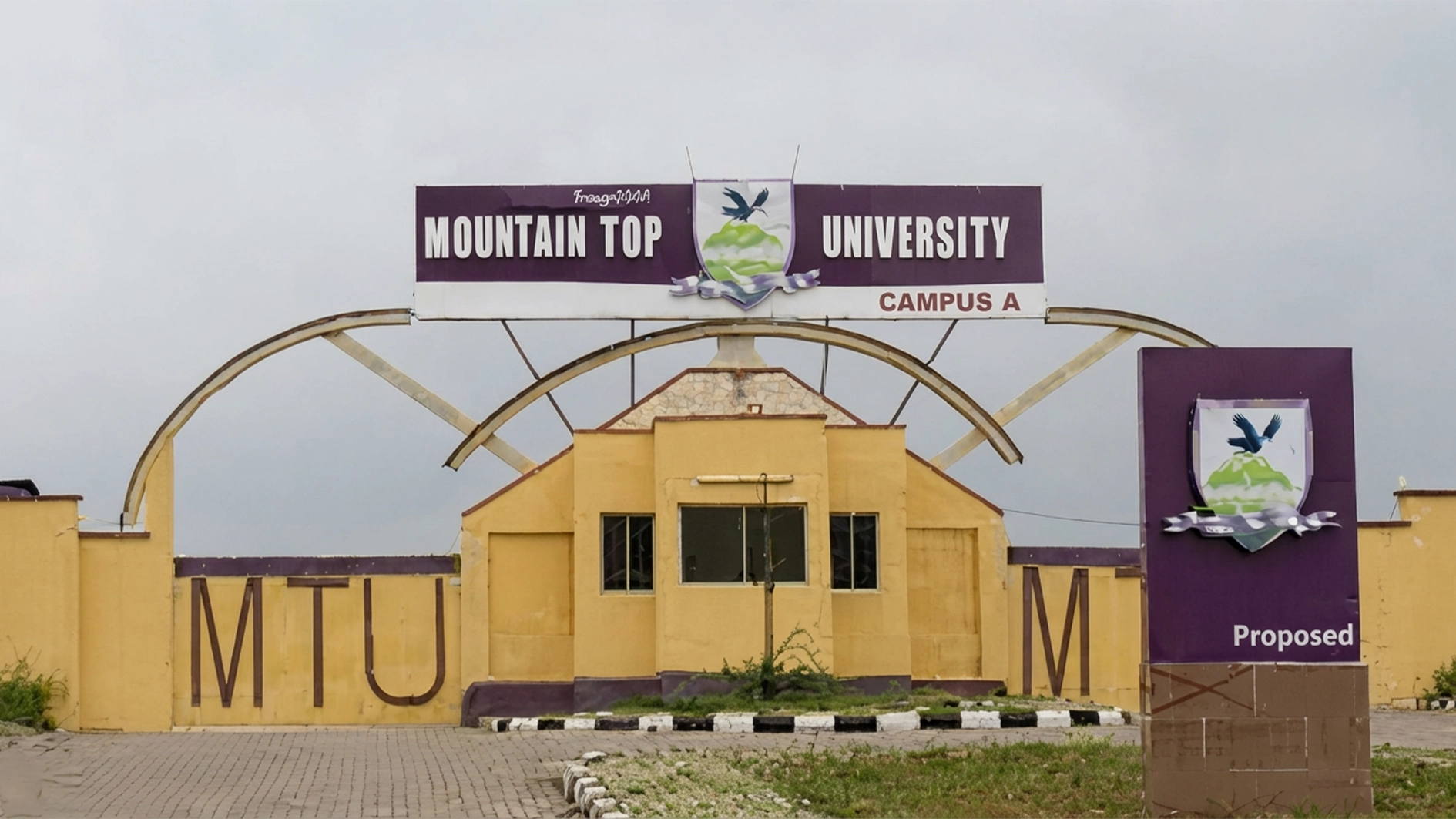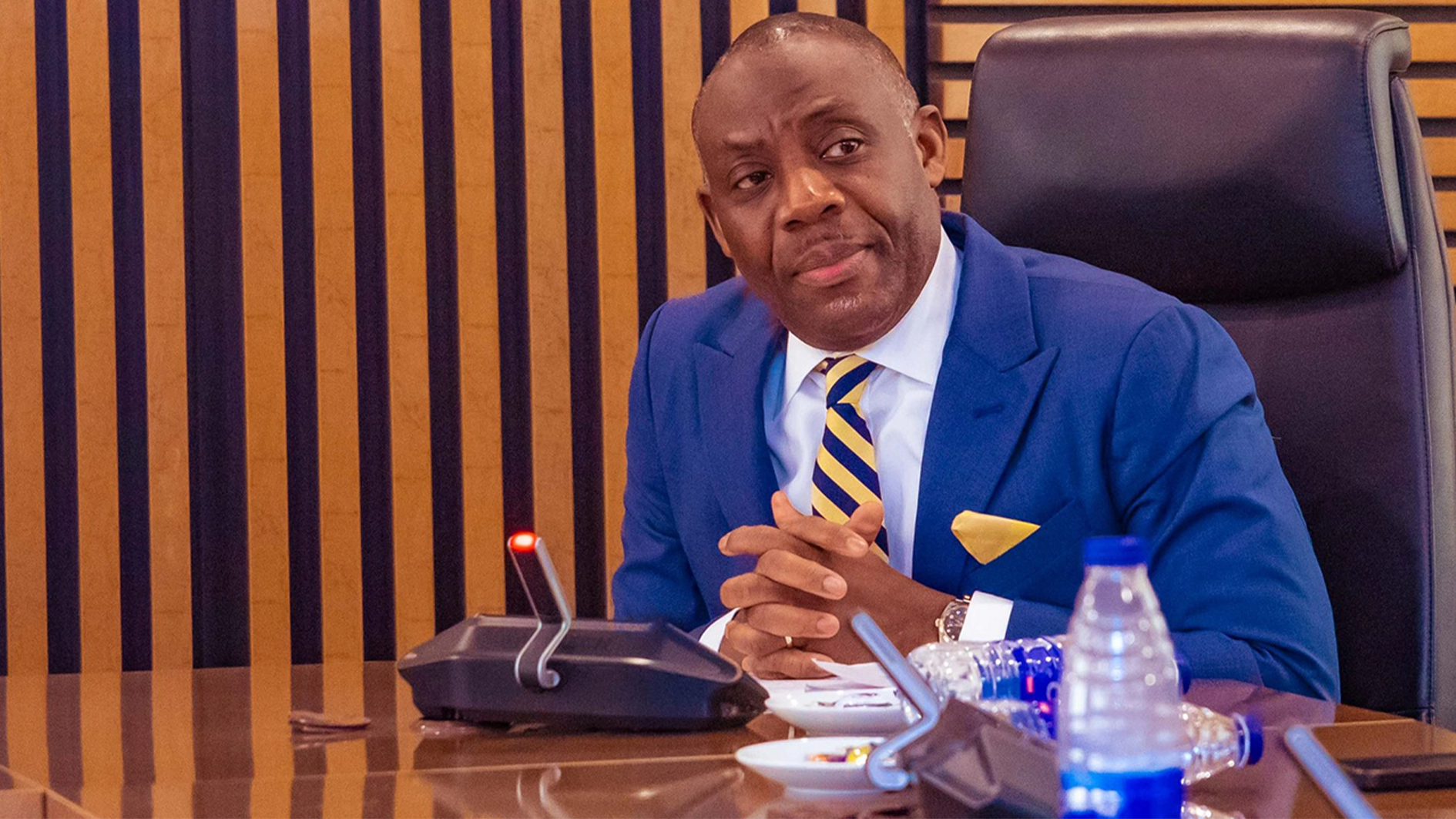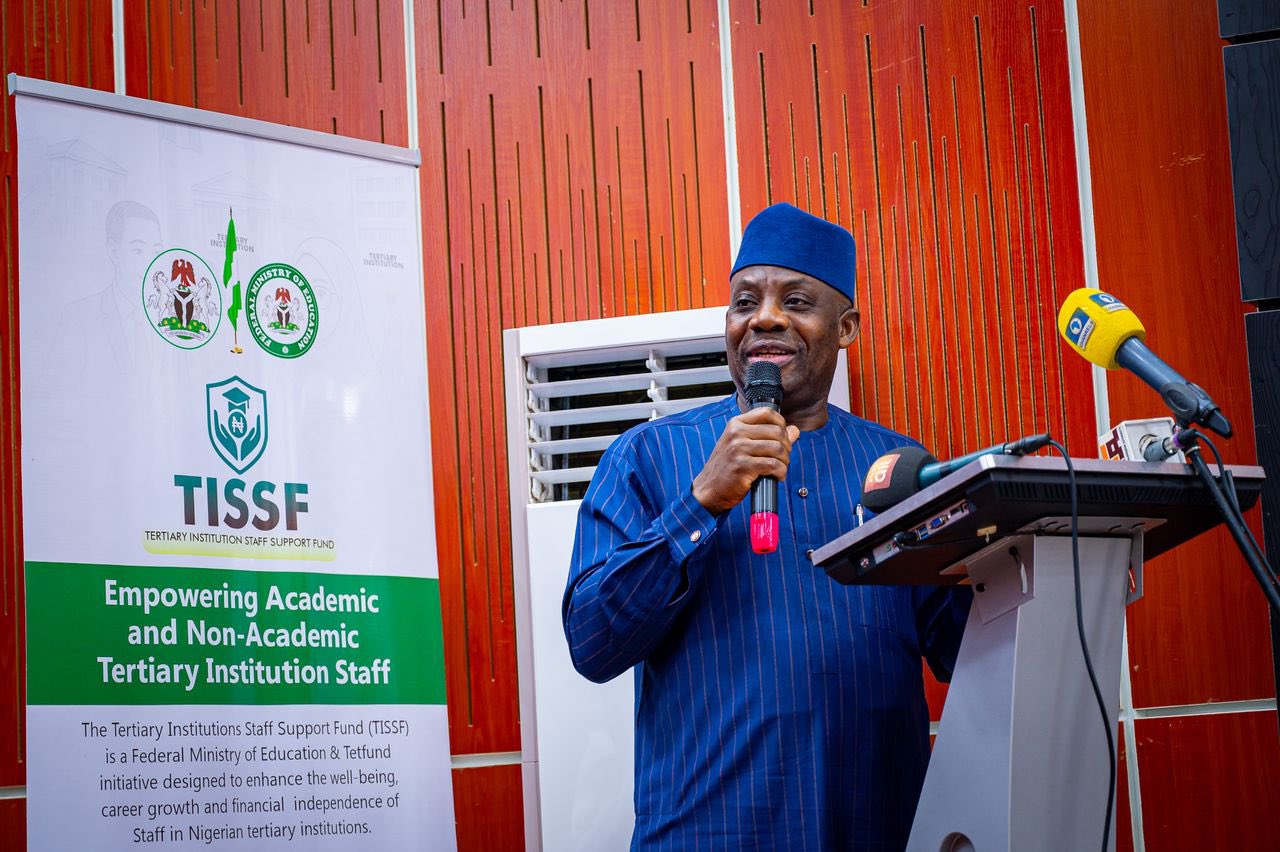Executive Secretary of the Tertiary Education Trust Fund (TETFund), Sonny Echono, has called for stronger national support to enable the fund deliver on its mandate of driving innovation, strengthening local capacity, and reducing Nigeria’s dependence on imported goods.
Echono made the call at the 2025 Board of Trustees Town Hall Meeting in Lagos, where he spoke on the transformative potential of TETFund’s interventions.
Echono emphasised that increased investment in research and development would translate into new ideas, new products, and new services, ultimately leading to more jobs for Nigerians across key sectors.
He emphasised that the fund’s commitment to technological development, particularly in agriculture, would help replace traditional, manual farming practices with modern, locally developed equipment and tools.
Beyond agriculture, Echono stressed the need to curb illegal mining and channel the country’s mineral wealth into structured extractive industries driven by Nigerian expertise.
He noted that empowering local professionals through quality tertiary education would enable the country to stop importing everything and begin refining its own resources.
In his remarks, the Chairman of the Board of Trustees, Aminu Masari, noted that the agency was driving a systemic shift from infrastructure-heavy spending to a balanced model that prioritises human capital development, research commercialisation, entrepreneurship, and digital governance in line with President Bola Tinubu’s Renewed Hope Agenda.
To tackle the electricity crisis in the country’s tertiary institutions, Masari said the sum of ₦70 billion was set aside in TETFund’s 2025 budget for the deployment of mini-grid energy solutions across selected campuses.
The initiative, he explained, would reduce operational costs, improve research output, and create more conducive learning environments.
He said the agency’s investments in the research ecosystem had continued to yield tangible results, citing the TETFund Alliance for Innovative Research (TETFAIR), which had produced over 200 prototypes with commercialisation prospects, and the Research for Impact (R4i) programme, which has equipped 939 academics with skills to transform their ideas into market-ready products.
The Director General, Centre for International Advanced and Professional Studies (CIAPS), Prof. Anthony Kila, in his paper at the event, explained that TETFund would only remain relevant to Nigeria’s future if it urgently transformed from an infrastructure-focused agency into a strategic engine for innovation, research, commercialisation, and national competitiveness.
Kila, who spoke on, ‘Tertiary education in Nigeria and the relevance of TETFund’, warned that Nigeria’s tertiary education system was facing an intellectual emergency.
According to him, the country contributes less than 0.3 per cent of the global research output, despite having a population of over 200 million.
Columnist and former Chairman of The Guardian Editorial Board, Dr Reuben Abati, noted that TETFund remained a critical engine of Nigeria’s higher education, supporting infrastructure, research, academic training, and institutional capacity, but it must evolve to meet 21st-century challenges.






